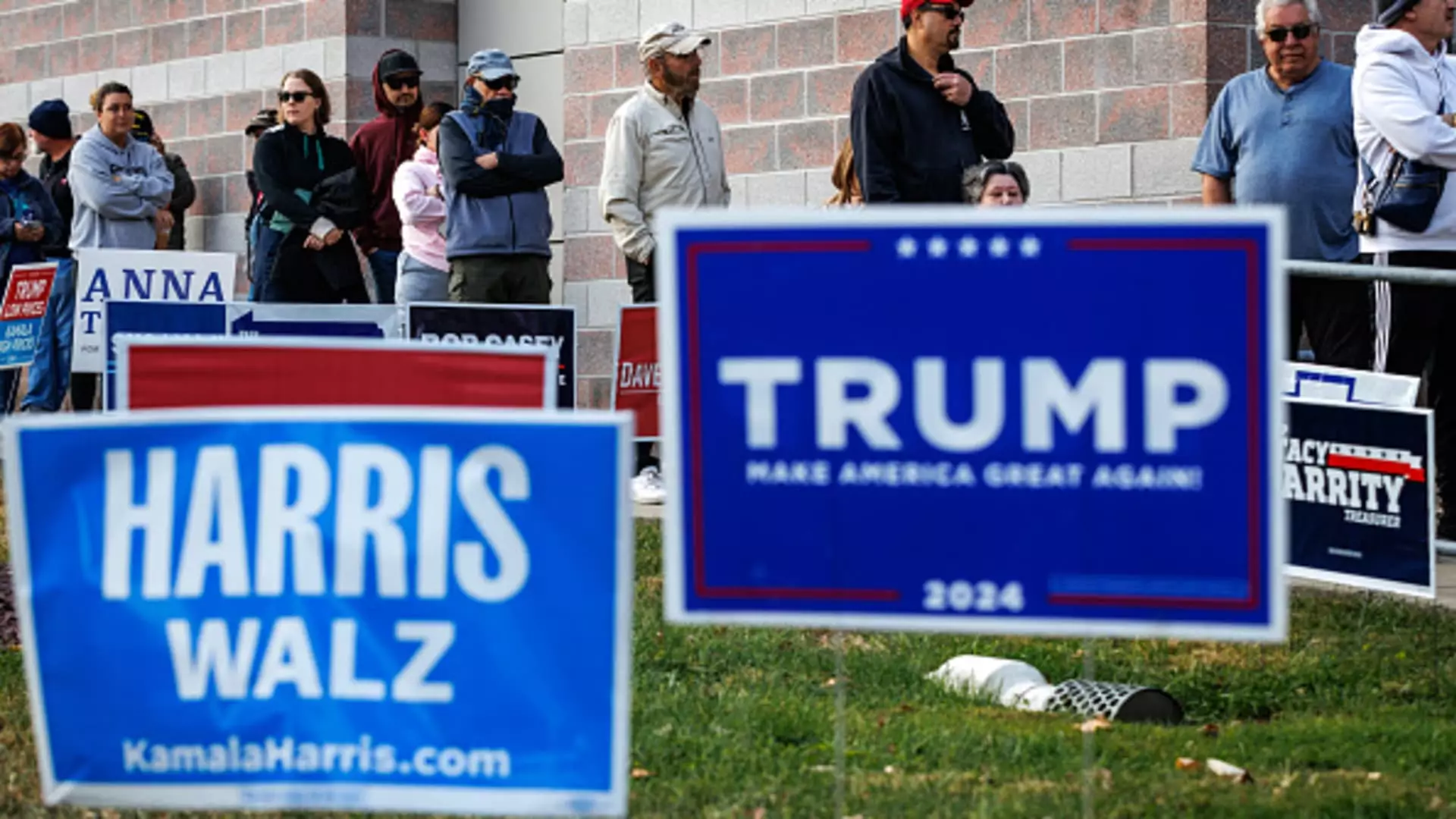The sentiment among older voters has shifted significantly in recent years, particularly in the wake of economic uncertainty. Following the recent election, a notable post-election poll from the AARP indicated that a substantial portion of voters aged 50 and over felt worse off compared to four years prior. This demographic, often referred to as “silver voters,” presents a unique electoral challenge due to their significant representation in the voting populace and their economic vulnerabilities. With 47% of voters in this age group declaring they are “worse off now,” this sentiment is particularly pronounced among swing voters, where the figure soars to 55%. The implications of this discontent are profound, as they not only shape individual voting behavior but also influence broader electoral outcomes.
In competitive Congressional districts, the outcome of the election highlighted a stark division in political allegiance within this demographic. President-elect Donald Trump secured a narrow victory among voters aged 50 and over, winning by two percentage points, mirroring his national performance. However, when examining sub-groups within this category, younger seniors (ages 50-64) leaned even more towards Trump with a seven-point victory, whereas those aged 65 and above slightly favored Vice President Kamala Harris. This divergence raises critical questions about the impact of age-specific issues, particularly as they pertain to financial security and health care.
The AARP’s commissioned survey, conducted by Fabrizio Ward and Impact Research, underscores the significant role that older voters played in determining Congressional races. Bob Ward, a Republican pollster involved in the research, asserts that the votes from those aged 50 and above were instrumental in securing a Republican majority. This demographic appears particularly attuned to economic conditions, and their dissatisfaction is not merely a reflection of political preference but a comprehensive anxiety regarding financial stability.
According to the survey, a staggering 62% of voters over 50 expressed concern regarding their personal financial situation, mirroring the broader national anxiety reflected across all ages. Among the various costs impacting older Americans, food has emerged as the paramount concern, with 39% identifying it as their most pressing financial issue, followed closely by health care and prescription medications at 20%. Significantly, the survey illustrates that financial issues—particularly inflation, economic stability, and job security—ranked as the primary voting determinants for over half of the respondents in this cohort.
Notably, while older voters might lean Republican on economic concerns, they still show a preference for Democratic policies regarding Social Security. Historically, Democrats have championed Social Security, enabling them to maintain a slight edge over Republicans in this critical area. However, the latest polls suggest that this support is far from solidified and could be shaped further by upcoming elections, with Republicans honing in on this vulnerability.
A pressing issue highlighted by the survey is the looming crisis facing Social Security, which is projected to face significant solvency challenges in the coming years. According to experts, the Social Security trust fund could be depleted by 2033, leaving beneficiaries at risk of receiving drastically reduced payments. Nancy Altman of Social Security Works emphasizes the urgency of this looming event, calling for Congressional action to secure the program’s future. Despite promises from candidates to protect Social Security, their proposed solutions often lack substantive plans for restoring its financial viability.
Moreover, Medicare is facing similar challenges, with potential shortages threatening coverage for vital health services. The AARP’s leadership has asserted the need for a fiscally responsible approach to safeguard both Medicare and Social Security, signaling a call to action for policymakers who might overlook the financial stability of older Americans in favor of partisan agendas.
The sentiments of older voters emerging from the post-election findings reveal a palpable fear surrounding their economic futures. With significant portions of this demographic feeling financially insecure, the political ramifications could be profound, as their concerns directly inform their voting behaviors. Understanding and addressing the financial anxieties related to inflation, rising costs, and the fate of Social Security and Medicare will not only influence future elections but is also essential for the well-being of older Americans across the nation. As political leaders engage with this vital group, the need for clear, actionable solutions addressing the root causes of financial security becomes paramount in rebuilding trust and support among the aging electorate.

